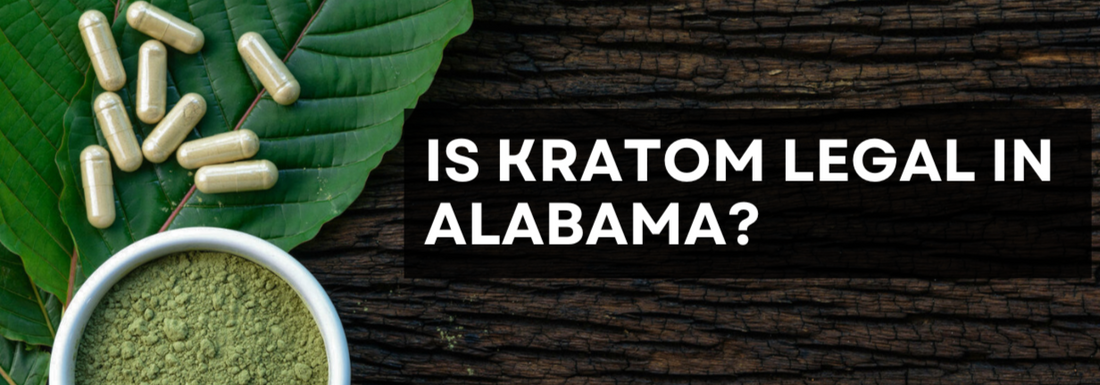
As various companies disseminate information about kratom's legal standing in different states, Top Tree has undertaken the task of compiling a series of well-researched articles on kratom laws and news. If you're curious about the legality of kratom in Alabama, you've come to the right place.
Did you know that Alabama was the first state to recognize Christmas as an official holiday in 1836? Additionally, 43% of all snails in the United States inhabit Alabama. However, you're likely not here for facts about bear wrestling laws in Alabama but rather for insights into kratom legality.
2024 Update on Kratom Legality in Alabama
The question lingers: Is kratom legal in Alabama? Unfortunately, the answer remains no. Possessing, selling, or purchasing kratom in Alabama is currently prohibited.
However, legislative shifts are possible. Vermont's removal of kratom from its controlled substances list in 2023 exemplifies this potential. Across the nation, advocates tirelessly push for kratom legalization.
Overview of Alabama Kratom Laws: Origins of the Ban
Alabama's kratom ban didn't occur hastily. Unlike some states, Alabama wasn't among the first to regulate kratom. However, it ultimately became the sixth and final state to ban it.
Before 2016, kratom enjoyed legality in Alabama. It wasn't until May of that year that Governor Robert Bentley signed Senate Bill 226, effectively criminalizing kratom-related activities in the state.
Interestingly, SB 226 initially didn't name kratom specifically. Instead, it targeted two of kratom's alkaloids: mitragynine and 7-hydroxymitragynine.
Representative Nathaniel Ledbetter and Senator Steve Livingston played pivotal roles in drawing attention to kratom's presence, leading to the passage of SB 226.
Though the bill didn't overtly mention kratom, its inclusion of these alkaloids under synthetic controlled substances rendered kratom possession illegal in all forms.
Penalties for Kratom-Related Offenses in Alabama:
Alabama's classification of kratom as a Schedule I controlled substance subjects offenders to severe penalties akin to those for substances like methamphetamine and heroin.
The penalties vary based on the quantity of kratom and the nature of the offense. For instance:
- Possession: A Class D felony, punishable by 1-5 years imprisonment and fines up to $7500.
- Kratom Trafficking: Sale, manufacture, or possession of 56 or more grams constitutes trafficking, carrying sentences ranging from 3 years to life and fines from $50,000 to $250,000.
- Providing Kratom to Minors: A Class A felony with non-negotiable sentencing and no probationary leniency.
- Kratom Manufacturing: Considered either a Class A or Class B felony, depending on the circumstances.
In Conclusion:
Alabama's stance on kratom remains stringent, with severe consequences for even minor infractions. Traveling through states where kratom is illegal, especially Alabama, poses substantial risks. It's imperative to navigate these legal waters with caution and awareness.
Please note: At Eden Grows, we prioritize transparency and responsible usage of our products. We do not endorse or encourage their use for medicinal purposes. It's essential to consult with healthcare professionals before incorporating any products into your wellness routines.
